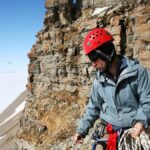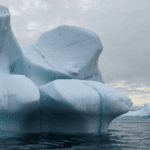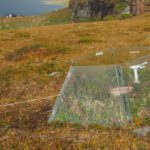A new study published in Arctic Science explores the perceptions of early-career researchers (ECRs) in involving local Indigenous communities in Arctic research. The study authors, who conducted the online survey through the Bridging Polar Early Career Researchers and Indigenous Peoples in Nordic Countries project, found ECRs value local Indigenous knowledge and want to involve these communities in research but need more guidance in building strong relationships.
Lead author Dr. Ylva Sjöberg explained that being new to working in the Arctic is a major disadvantage for young researchers. “You have very limited time…and to really work efficiently with any group of people in your study area, long-term relationships are quite important,” she said.
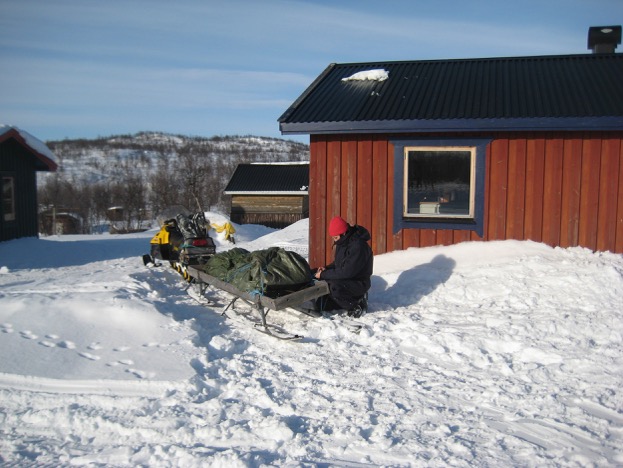
Dr. Ylva Sjöberg, lead author of the Arctic Science study, conducts permafrost research in Pulsujärvi, in northern Sweden, in 2013 (Photo | Ylva Sjöberg).
Experience and interest in Indigenous involvement differed by location and scientific discipline for the early career researchers surveyed. Researchers in North America had more experience with Indigenous communities in the Arctic and valued their participation more than early researchers in Nordic countries. Nordic researchers cited not having guidelines for working with Indigenous communities as a major challenge. In contrast, ethical guidelines have been created by the Assembly of First Nations, the Tri-Council research agencies, and many universities in Canada.
Social scientists were more experienced in working with Indigenous communities and placed greater value on community participation than respondents from the natural sciences.
The study summarized 108 survey responses from 22 countries. Approximately 22% of respondents conducted research in northern Canada and Alaska, whereas 20% worked in Scandinavia and northwestern Russia. Sixty-three percent of respondents were natural scientists, 25% were social scientists, and 12% fell outside these groups. Half of the respondents had previously worked with Indigenous peoples and half had not.
Survey respondents believed their research would benefit from greater knowledge of the environment, history, culture, and customs among local Indigenous peoples, as well as identification of relevant research questions.
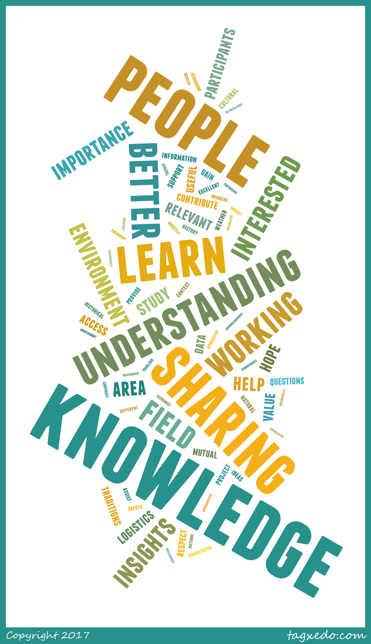
A word cloud depicting responses to the survey question, “Based on your observations and experience, what elements would contribute to establish fruitful cooperation work between polar ECRs and Indigenous youths?” Word size is scaled by the number of times each word appeared in responses.
In many disciplines, incorporating traditional knowledge is a growing priority; however, there are justifiable concerns for Indigenous communities that this knowledge be used respectfully. Sjöberg acknowledged that, “with Indigenous Peoples, [scientists] have a pretty bad track record. There are many reasons why people might not want to welcome us.”
Fewer than one-quarter of survey respondents lived above 60°N, and only nine out of the 108 respondents self-identified as Indigenous. There were too few responses to analyze from a second survey, which aimed to capture Indigenous communities’ perceptions of Arctic research. The study authors emphasized that not having this complementary perspective limits understanding of how collaborations might be facilitated—and how Arctic Indigenous communities think research should be conducted.
“We need to find ways to listen and see how we can do this in a good way,” said Sjöberg. “Because we aren’t going to study less in the Arctic in the future. We’re probably going to study more. [Scientists and Indigenous communities] are not going to be able to avoid interacting.”
To facilitate collaboration among ECRs and Indigenous Peoples in the Arctic, the authors recommended increasing networking opportunities, developing guidelines, training natural scientists, researching perceptions and challenges for Indigenous Peoples, and dedicating funding to these initiatives.
Read the full study: Involvement of local Indigenous peoples in Arctic research — expectations, needs and challenges perceived by early career researchers in Arctic Science.


